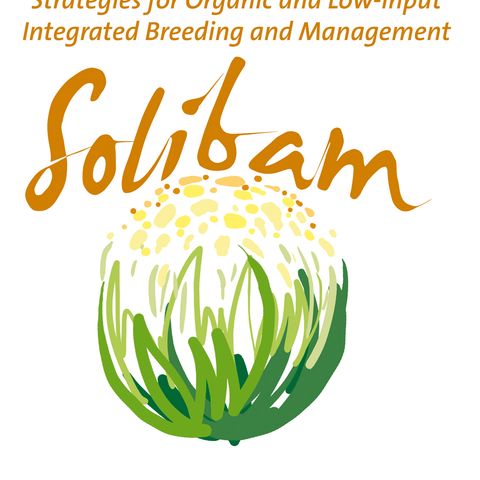
-
Agrobiodiversity: Voices from Ethiopia
2 JUL 2014 · Ethiopia is one of the world’s richest boxes of biodiversity. But when we talk about agricultural diversity, this treasure is under threat. To face this problem, in the last years some pioneering experiments started, with the aim of conserving traditional seeds through the connection between researchers and farmers. One of these projects was developed in collaboration with the European consortium SOLIBAM, a scientific endeavour to promote agrobiodiversity and food security. Here we put together some voices collected during a workshop held in Ethiopia in May 2014.10m -
Seed laws and fairs in West Africa
1 JUL 2014 · This third SOLIBAM podcast presents the workshop done in Dakar in March 2014 on seed laws and farmers' rights.11m 5s -
Shaping the future of agriculture
31 JUL 2013 · The first SOLIBAM podcast on the 2012 Congress in Grottaferrata.12m 23s -
Participatory plant breeding
31 JUL 2013 · The second radio podcast of the European project SOLIBAM (www.solibam.eu) on the importance of participatory plant breeding. Modern agriculture is like an inverted pyramid with a precarious base. In fact less than 3% of all the cultivated plant varieties are in use today. This happens because agriculture is grounded on a top-down system, where farmers are not involved in the decision-making process. But a completely new approach is slowly making way: it is the so-called participatory breeding, where farmers closely work with researchers to bring biodiversity back into the fields. The International Center for Agricultural Research in the Dry Areas works to reach this goal. One of its leading scientists is Salvatore Ceccarelli, who started to promote participatory plant breeding 18 years ago. “Our programme started in Syria in 1995, then a year after in Morocco and Tunisia, then in Jordan, then we had a program in Nigeria, Eritrea and Yemen, and recently we started in Iran and we have two programmes in Ethiopia” “In practice what happens is that we plant all these different varieties (the number depends on the countries), then farmers go to the fields and they give a score writing a number on a piece of paper that expresses their opinion. Then we also measure many different characteristics which are usually dictated by the farmers. [...] All these experiments, we try to organise them in a properly scientific manners. The data generated go back to the farmers, and they decide what to select. I consider this as a sort of moral obligation, because if we not give the most correct information from a scientific point of view, how can we pretend that they do a good job?” On a larger scale, participatory plant breeding also means a better defence of farmers’ rights. Regine Anderson, from Fridtjof Nansen Institute in Norway, says these rights should be granted by an International agreement, the Treaty on Plant Genetic Resources for Food and Agriculture. Signed in 2001, the Treaty is crucial in the fight against hunger and poverty and is essential for the conservation of genetic diversity. “The International Treaty on Plant Genetic Resources for Food and Agriculture has an article on farmers’ rights, article 9, which recognizes the enormous contribution of farmers in conserving and making available plant genetic resources for food and agriculture.” “The Treaty is the most important international instrument we have to ensure that we can make a turn, and that we can make more emphasis on the conservation sustainable use, which is so necessary to ensure future food security.” When it comes to the conservation of plant genetic resources, no country is completely self-sufficient. For this reason, international cooperation and open exchange of seeds are very important for food security. In Europe we have a situation where all the European member states have ratified the International Treaty. “Until 2008 in the EU it was actually not allowed - and it’s still not allowed - for farmers to exchange and sell farm saved seeds. And also, the seeds that are allowed on the official list on plant varieties, they have to meet certain requirements of genetic homogeneity, which is actually the opposite of what we’re trying to support with genetic diversity.” Merging the roles of people involved in the agricultural chain is essential to conserve biodiversity, improve crops, and produce food of quality for all. In the developing counties this is sometimes a big challenge, as Salvatore Ceccarelli explains. “A lot of professional breeders do not like very much this kind of work, and they always try to find ways to demonstrate that farmers are not good to make selection”. “As a biological scientist I was not expecting all the collateral effects that now after 15 years I realize are much more important than the variety itself” “I have been working with families for 15 years, I have seen their children… They make a gift that even when I’m talking about I get tears in my eyes, because is something completely unexpected.”8m 5s
Listen to the SOLIBAM podcasts!
www.solibam.eu
www.solibam.eu
Information
| Author | Riccardo Bocci |
| Categories | Science |
| Website | - |
| - |
Copyright 2024 - Spreaker Inc. an iHeartMedia Company
